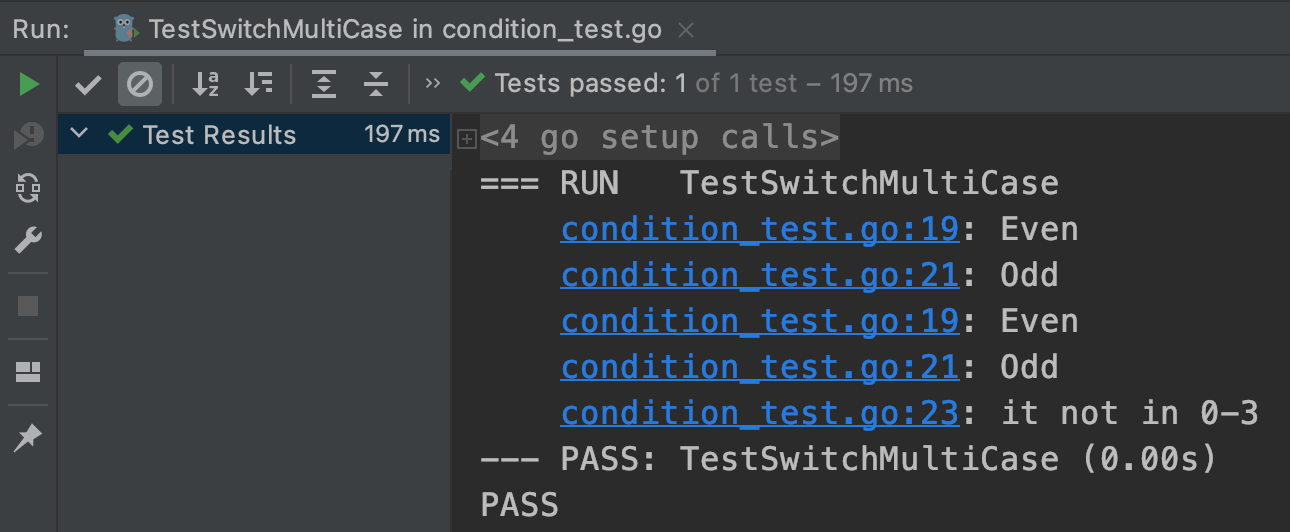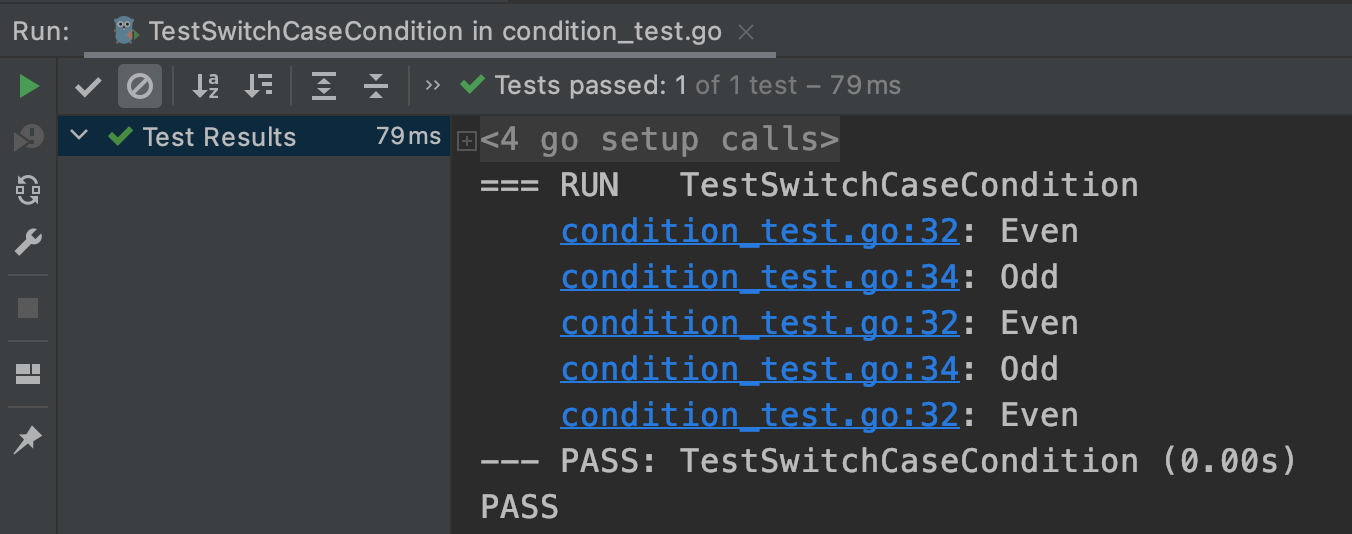循环
与其他主要编程语言的差异
Go 语言仅支持循环关键字 for
for j := 7; j <= 9; j++
// while 条件循环
// while (n < 5)
n := 0
for n < 5 {
n++
fmt.Println(n)
}
// 无限循环
// while (true)
n := 0
for {
...
}测试实例 1
package loop_test
import "testing"
func TestWhileLoop (t *testing.T) {
n := 0
for n < 5 {
t.Log(n)
n++
}
// 输出:0 1 2 3 4
// 每个输出都会换行,为了表示方便,把输出写在一行
}
if 条件
与其他主要编程语言的差异
condition 表达式结果必须为布尔值
支持变量赋值:
if var declaration; condition { // code to be expected if condition is true }为什么需要这样的一种特性呢?
因为 Go 语言的函数是支持多返回值的,一个方法可以同时返回两个值,我们可以对其返回的值进行判断,如代码实例 2 中所示。
测试实例 2
func TestIfMultiSec(t *testing.T) {
if v, err := someFun(); err==nil {
t.Log("没有错误")
...
} else {
t.Log("有错误")
...
}
}switch 条件
与其他主要编程语言的差异
- 条件表达式不限制为常量或者整数;
- 单个
case中,可以出现多个结果选项,使用逗号分割; - 与 C 语言等规则相反,Go 语言不需要用
break来明确退出一个case; - 可以不设定
switch之后的条件表达式,在此种情况下,整个switch结构与多个if...else...的逻辑作用等同;
测试实例 3
func TestSwitchMultiCase(t *testing.T) {
for i := 0; i < 5; i++ {
switch i {
case 0, 2:
t.Log("Even")
case 1, 3:
t.Log("Odd")
default:
t.Log("it not in 0-3")
}
}
}
func TestSwitchCaseCondition(t *testing.T) {
for i := 0; i < 5; i++ {
switch {
case i%2 == 0:
t.Log("Even")
case i%2 == 1:
t.Log("Odd")
default:
t.Log("it not in 0-3")
}
}
}3-1 运行结果:

3-2 运行结果:


